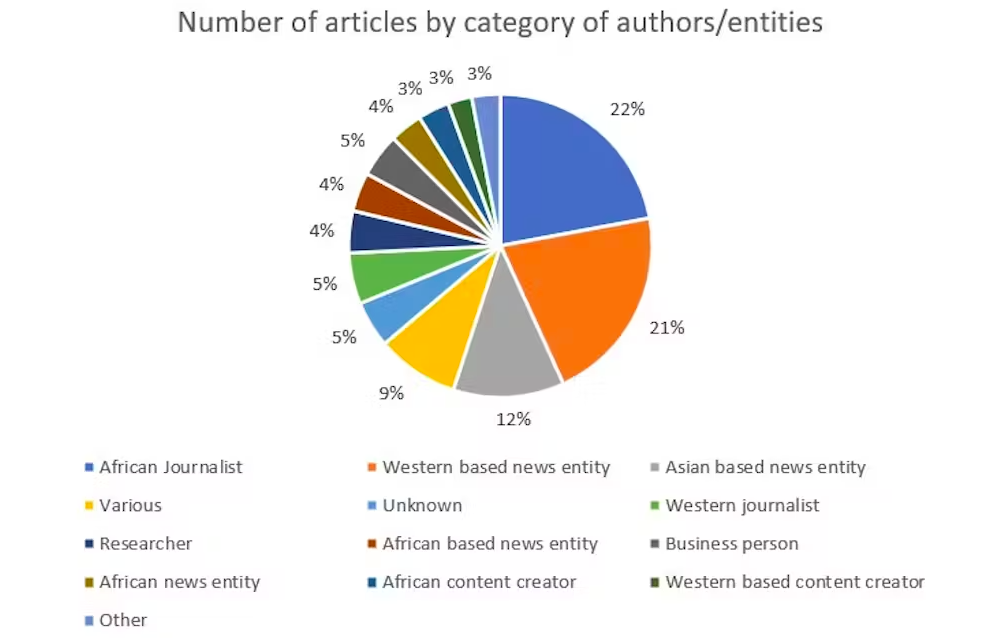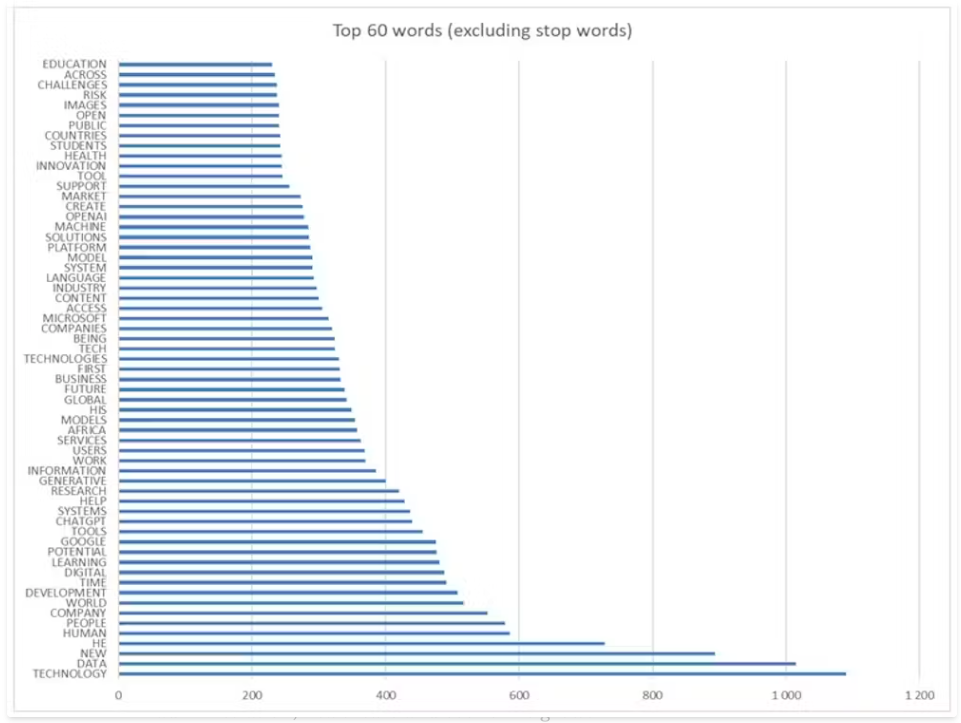Report by Sisanda Nkoala, University of the Western Cape; Musawenkosi Ndlovu, University of Cape Town; Tanja Bosch, University of Cape Town, and Trust Matsilele, Birmingham City University. News media shape public understanding of artificial intelligence (AI) and influence how society interacts with these technologies. For many people, especially those who have not sought more knowledge about AI elsewhere, media platforms are a primary source of information.
This is particularly significant in Africa, where historical and socioeconomic contexts like colonial legacies and uneven technology transfer shape how AI is understood and adopted.
Consequently, the way African news media represent and frame AI carries weight in shaping broader public discourse.
To explore how African media report on AI, we, as media researchers, analysed 724 news articles about AI from 26 English-speaking African countries. These were published between 1 June 2022 and 31 December 2023. We looked at how these publications contributed to the hype about AI – exaggerated excitement, inflated expectations, and often sensationalised claims about what artificial intelligence can do.
Hype is often contrasted with the notion of something called an AI winter. This is a period of diminished interest and investment in AI technologies. It’s a cyclical trend that has been seen since AI’s inception in the 1950s. It manifests in exaggerated language, overly optimistic or pessimistic views and significant investments in AI.
Our study examined how AI was portrayed in African news media – whether it was exaggerated or overly optimistic. Media portrayal can influence policy, investment and public acceptance of new technologies. For example, in Germany it was found that positive media coverage of different fuels changed public perception in a positive way.
Clear patterns
Our findings show a clear pattern in placement and authorship of articles. The most common placement of AI articles (36%) was in the technology section of publications, followed by general news (24%) and then the business section (19%). This shows that these publications mostly talk about AI as a practical tool that can solve problems and create economic opportunities.
They highlight its usefulness and potential benefits, rather than exploring its social or ethical implications. Discussion of issues like employment, inequality and cultural values was largely missing.
African journalists, news entities and content creators contributed some 29% of the articles. But western-based news entities (21%) and journalists (5%) had a considerable influence. Global news agencies like AFP (15%) and Reuters (6%), along with tech news providers like Research Snipers (13%), frequently wrote these pieces.
Only a small proportion of articles (4%) were written by researchers. This suggests that the voices of those directly engaged in AI research and development in Africa were muted. But they are crucial for a locally informed understanding.
To sum up the patterns:
- Practical benefits of AI are emphasised at the expense of social and ethical conversations
- African perspectives on how AI should be developed and used are often overlooked in favour of a western, business-focused viewpoint.

What words are used to describe AI?
We also analysed the words used most frequently. The frequent mention of Google, Microsoft and ChatGPT reflects the dominance of western tech giants in the AI landscape. Words like “he” and “his” appeared disturbingly frequently, while feminine pronouns weren’t among the top words. This indicates a bias towards male perspectives.
The scarcity of terms like Africa, African and African countries suggests that the coverage seldom regards specific African needs and challenges. This overlooks Africa’s growing AI ecosystem.

We found three main themes around AI in African news:
- AI’s transformative potential, for example for agriculture, administration, healthcare and economic growth
- Concerns about AI’s potential negative effects, the unknown and disruptive nature of AI
- Articles that offered a more balanced view and useful information, aiming to demystify AI tools and explain developments.
What this means for Africa
The dominance of technical and economic framing, often by western voices, might steer policy decisions towards uptake without adequate local consultation or ethical oversight. This might lead to policies that mirror global hype rather than community-specific needs.
The overemphasis on “tools” and “solutions” risks overlooking the broader effects of AI on employment, inequality and cultural values.
The lack of Afrocentric terms in the reporting contributes to a symbolic exclusion, where Africa’s specific needs and opportunities are marginalised.
Towards a more inclusive AI narrative
To encourage a more responsible and locally relevant AI journalism in Africa, African journalists and researchers should be empowered to report on and analyse this technology.
The range of voices should expand to include local researchers, policymakers and communities experiencing AI’s effects firsthand. This means balancing coverage of AI’s economic potential with sustained attention to its social, cultural and ethical implications.
African media can resist one-dimensional hype and create a more inclusive and socially responsible conversation around AI.![]()
Sisanda Nkoala, Associate professor, University of the Western Cape; Musawenkosi Ndlovu, Associate Professor, Centre for Film and Media Studies, University of Cape Town; Tanja Bosch, Professor in Media Studies and Production, University of Cape Town, and Trust Matsilele, Senior Lecturer, Birmingham City University
This article is republished from The Conversation under a Creative Commons license. Read the original article.














